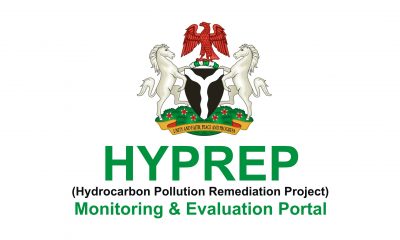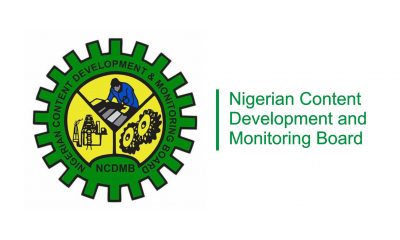Opinion
Niger Delta And Resource Control
During the era of colonialism, a Memorandum of Understanding (MoU) was reached between the Niger Delta region and the British administrators, that a sovereign independent nation would be granted independence after exploration and exploitation of natural mineral resources for thirty (30) years. The MoU was entered before the amalgamation of the Northern and Southern Protectorates in 1914 piloted by the British Governor-General, Sir Fredrick Lord Luggard.
Retrospectively, this was the idea behind the desire to have the Republic of Biafra which fueled the civil disorder led by the Ikemba of Nnewi, late Chief Emeka Odimegwu Ojukwu in 1967. However, due to lack of adequate planning and consultation, the dream could not scale through as the Nigeria Civil War ended on 12th January, 1970 in favour of the Nigerian troops. It is obvious that the step taken to declare such a sovereign entity was hasty and not properly articulated, hence, the fall of Biafra.
Two decades ago, the cause for the emancipation of the Niger Delta took a modern dimension with the Ogoni-born Human Rights Activist, late Kenule Saro Wiwa, (popularly known as KENSARO), championing the cause of the Niger Delta.
Saro Wiwa used Ogoni ethnic nationality as a study case to fight for proper repositioning of the entire Niger Delta region as an oil producing region in need of corresponding attention it deserves from government.
Unfortunately, the gallant efforts made by the Human Rights Activist were cut-short by the General Sani Abacha’s milittary junta.
There is no doubt that all over the Niger Delta, there are oil wells at various locations being explored by multinational oil firms operating within the axis of the Niger Delta for the past fifty-seven years. It is, however, sad that the region is devastated as it has lotsd its socio-economic values and has continued to suffer abject neglect from government even when it is the goose that lays the golden eggs that sustain the nation’s economy. In fact, it is these ugly and anti-social conditions of the area that spurred late Ken Saro Wiwa into advocating for the resource control, for which he was silenced to death by hanging along with four others. Although, Ken is out of sight and existence on the planet earth, his legacy lives on.
It is instructive that some self-centred personalities who played double standard over the noble cause of Ken Saro have realised their mistakes and are now regretting their actions.
They are like the Jews who beat their chests for cruxifying Jesus Christ, only to realise later that they have cruxified an innocent person.
It is no gainsaying that every nooks and crannies of the Niger Delta region are chanting the crusade for resource control and appropriate placement of the Niger Delta region in the scheme of things. Obviously, oil and gas flaring has done a lot of unquantifying damage to the ecological system of the Niger Delta region. Pollution has become the order of the day and the landscape can no longer yield enough cash crops just as coastal species are paralysed. Economic plantations have been adversely affected. Pure and clean drinking water ais difficulty come by. The entire environment of the Niger Delta is hazardous, leaving the socio-economic well-being of the people in jeopardy.
There is no doubt that oil and gas are the mainstay of the Nigerian economy, yet the Niger Delta sub-region wallows in negliect and abject poverty. What a high level of injustice and marginalization!
If the Niger Delta is not adequately favoured at this time when a son of the Niger Delta is the President and when the region is feeding the nation, one could imagine what would be her fate when oil and gas are no more because nature is drastically changing on daily basis. The region should not be pacified with some political positions. What we need is the autonomy to control our God-given natural resources.
At this juncture, one would plead with President Goodluck Ebele Jonathan to look into the crucial position and condition of the Niger Delta region and earnestly expedite action to save the region from socio-economic, political and natural collapse from gas flaring.
Of course, it has been asserted that time and tide do not wait for anybody. This is the golden opportunity to act wisely to deliver the derided region from untold calamities just as Mordecai and Queen Esther wisely and meaningfully ultilised their positions and privileges to save the Jews from annihilation by a tyrannical and dictatorial economy in the land of Shushan (Esther 4 vs 11-16).
Ominyanwa, a public affairs analyst, wrote in from Port Harcourt.
Opinion
Why Reduce Cut-Off Mark for C.O.E ?
Opinion
Welcome! Worthy Future For R/S
Opinion
Restoring Order, Delivering Good Governance
The political atmosphere in Rivers State has been anything but calm in 2025. Yet, a rare moment of unity was witnessed on Saturday, June 28, when Governor Siminalayi Fubara and Minister of the Federal Capital Territory, Chief Nyesom Wike, appeared side by side at the funeral of Elder Temple Omezurike Onuoha, Wike’s late uncle. What could have passed for a routine condolence visit evolved into a significant political statement—a symbolic show of reconciliation in a state bruised by deep political strife.
The funeral, attended by dignitaries from across the nation, was more than a moment of shared grief. It became the public reflection of a private peace accord reached earlier at the Presidential Villa in Abuja. There, President Bola Ahmed Tinubu brought together Governor Fubara, Minister Wike, the suspended Speaker of the Rivers State House of Assembly, Martin Amaewhule, and other lawmakers to chart a new path forward.
For Rivers people, that truce is a beacon of hope. But they are not content with photo opportunities and promises. What they demand now is the immediate lifting of the state of emergency declared in March 2025, and the unconditional reinstatement of Governor Fubara, Deputy Governor Dr. Ngozi Odu, and all suspended lawmakers. They insist on the restoration of their democratic mandate.
President Tinubu’s decision to suspend the entire structure of Rivers State’s elected leadership and appoint a sole administrator was a drastic response to a deepening political crisis. While it may have prevented a complete breakdown in governance, it also robbed the people of their voice. That silence must now end.
The administrator, retired naval chief Ibok-Ette Ibas, has managed a caretaker role. But Rivers State cannot thrive under unelected stewardship. Democracy must return—not partially, not symbolically, but fully. President Tinubu has to ensure that the people’s will, expressed through the ballot, is restored in word and deed.
Governor Fubara, who will complete his six-month suspension by September, was elected to serve the people of Rivers, not to be sidelined by political intrigues. His return should not be ceremonial. It should come with the full powers and authority vested in him by the constitution and the mandate of Rivers citizens.
The people’s frustration is understandable. At the heart of the political crisis was a power tussle between loyalists of Fubara and those of Wike. Institutions, particularly the State House of Assembly, became battlegrounds. Attempts were made to impeach Fubara. The situation deteriorated into a full-blown crisis, and governance was nearly brought to its knees.
But the tide must now turn. With the Senate’s approval of a record ?1.485 trillion budget for Rivers State for 2025, a new opportunity has emerged. This budget is not just a fiscal document—it is a blueprint for transformation, allocating ?1.077 trillion for capital projects alone. Yet, without the governor’s reinstatement, its execution remains in doubt.
It is Governor Fubara, and only him, who possesses the people’s mandate to execute this ambitious budget. It is time for him to return to duty with vigor, responsibility, and a renewed sense of urgency. The people expect delivery—on roads, hospitals, schools, and job creation.
Rivers civil servants, recovering from neglect and under appreciation, should also continue to be a top priority. Fubara should continue to ensure timely payment of salaries, address pension issues, and create a more effective, motivated public workforce. This is how governance becomes real in people’s lives.
The “Rivers First” mantra with which Fubara campaigned is now being tested. That slogan should become policy. It must inform every appointment, every contract, every budget decision, and every reform. It must reflect the needs and aspirations of the ordinary Rivers person—not political patrons or vested interests.
Beyond infrastructure and administration, political healing is essential. Governor Fubara and Minister Wike must go beyond temporary peace. They should actively unite their camps and followers to form one strong political family. The future of Rivers cannot be built on division.
Political appointments, both at the Federal and State levels, must reflect a spirit of fairness, tolerance, and inclusivity. The days of political vendettas and exclusive lists must end. Every ethnic group, every gender, and every generation must feel included in the new Rivers project.
Rivers is too diverse to be governed by one faction. Lasting peace can only be built on concessions, maturity, and equity. The people are watching to see if the peace deal will lead to deeper understanding or simply paper over cracks in an already fragile political arrangement.
Wike, now a national figure as Minister of the FCT, has a responsibility to rise above the local fray and support the development of Rivers State. His influence should bring federal attention and investment to the state, not political interference or division.
Likewise, Fubara should lead with restraint, humility, and a focus on service delivery. His return should not be marked by revenge or political purges but by inclusive leadership that welcomes even former adversaries into the process of rebuilding the state.
“The people are no longer interested in power struggles. They want light in their streets, drugs in their hospitals, teachers in their classrooms, and jobs for their children. The politics of ego and entitlement have to give way to governance with purpose.
The appearance of both leaders at the funeral was a glimpse of what unity could look like. That moment should now evolve into a movement-one that prioritizes Rivers State over every personal ambition. Let it be the beginning of true reconciliation and progress.
As September draws near, the Federal government should act decisively to end the state of emergency and reinstate all suspended officials. Rivers State must return to constitutional order and normal democratic processes. This is the minimum requirement of good governance.
The crisis in Rivers has dragged on for too long. The truce is a step forward, but much more is needed. Reinstating Governor Fubara, implementing the ?1.485 trillion budget, and uniting political factions are now the urgent tasks ahead. Rivers people have suffered enough. It is time to restore leadership, rebuild trust, and finally put Rivers first.
By: Amieyeofori Ibim
Amieyeofori Ibim is former Editor of The Tide Newspapers, political analyst and public affairs commentator
-
Politics11 hours ago
Natasha’s Counsel Writes Senate Over Court Judgment
-
Nation11 hours ago
NIPR Practitioners Urge To Go Beyond Traditional Media Relations To Strategic Leadership Functions
-
Politics12 hours ago
Bayelsa APC Hails Late Buhari As Change Agent In Nigerian Politics
-
News9 hours ago
South-South contributes N34trn to Nigeria’s economy in 2024 – Institute
-
Niger Delta11 hours ago
Police Rescue Kidnap Victim, Recover Pistol In A’Ibom
-

 Politics10 hours ago
Politics10 hours agoINEC Trains Political Parties Officials On ICNP Use Ahead By-Elections
-

 Business12 hours ago
Business12 hours agoReplace Nipa Palms With Mangroove In Ogoni, Group Urges FG, HYPREP
-

 Business9 hours ago
Business9 hours agoNCDMB, Dangote Refinery Unveil JTC On Deepening Local Content

